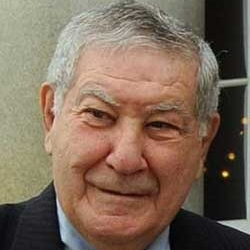The New Hampshire House Ways and Means Committee voted Tuesday to approve a casino gaming bill, called Senate Bill 113. The committee’s vote represented only the second time in the New Hampshire legislature’s history that the committee had given approval to a gaming bill.
If the proposed bill was passed, it would approve licensing for two casinos in the state of New Hampshire. This is only the first step in a long process and the measure barely made it out of committee. It passed with a 11-10 vote.
Gary Azarian Sees It Passing
Representative Gary Azarian, a Republican from Salem, believes the bill has a chance to pass the legislature. Azarian says that New Hampshire’s top legislative body has a new blood which is looking for solutions to perennial problems.
Azarian told WMUR 9 ABC, “I do think it’s different this year. We have a lot of new legislators this year. They recognize the need for education, health care, the need to put money back into the rainy day fund.”
Wallner Hopes Vote Is “No”
Opponents of the SB113 are disappointed by the committee’s vote, but they have the confidence of knowing that casino measures have always failed in statewide votes in the past.
Rep. Mary Jane Wallner, a Democrat from Concord, told the news that things might be different on the floor of the House. Wallner said, “I’m very disappointed to hear it is going to the floor with a positive recommendation. But on the floor, I hope people understand how detrimental this really could be for the state of New Hampshire.”
Generating New Sources of Revenue
Faced with tough decisions to make on the budget and taxation, many lawmakers could look at the casino measure as a way to raise state funds without raising taxes, though. That is how Representative Kathi Rogers, another Democrat from Concord, sees the issue.
Rogers said it would be hard to turn one’s back on the money which could be generated. She said, “It’s money that’s there. The revenue estimates, although people will disagree what they are, it’s been vetted by a number of committees. It’s been looked at by a number of economists.”
Shawn Jasper Sets Vote for April 29
House Speaker Shawn Jasper said a vote on the floor of the House is scheduled for April 29. Jasper said the House leadership would not take a position on the issue, effectively allowing lawmakers to vote their conscience. While political parties apply the whip to many issues, they tend to allow politicians vote their conscience on social issues like gambling. That makes such votes hard to predict for outsiders and insiders alike.
Despite not pressuring members of his party to take an official position, Speaker Jasper voiced skepticism that casinos would raise much cash for the state. Given the size of New Hampshire and the opulent new casinos expected to be built in Massachusetts, the traffic to such casinos might not be that great. Contradicting Kathi Rodgers and her citation of the revenue estimates, Jasper wondered aloud whether such gaming enterprises, which typically are taxed at a rate of 20% to 30%, would generate significant revenue.
Jasper said, “I don’t think we would be realizing any revenue very quickly. So it doesn’t solve any budget problems.”
Very Little Lobbying to Take Place
One decision could complicate matters for casino gaming advocates and social reformers alike: the decision to have a quick vote. Shawn Jasper said he did not want to expose members of the house to calls from lobbyists for two weeks, so he changed the time table for the vote from two weeks to one week. News sources indicate the House vote is expected to be close.
The casino bill in New Hampshire is part of a wider trend throughout New England to expand casino gambling. Last year, Massachusetts approved 3 land-based casinos for the first time. That has spurred Connecticut and Rhode Island to discuss expansions of gambling, to keep gamblers in their states from visiting the Boston and Springfield casinos.
One serious complication is the fact that Governor Maggie Hassan has stated she does not believe the state needs two casinos. Any bill which is passed in the House and the Senate would need to be signed into law by the governor. The mere fact that Hassan might not sign the gaming bill into law could hurt SB 113’s chances. Some politicians might not want to vote “Yes” to a bill that has little chance of raising taxes, but might mark them as soft on the kind of social problems gambling is thought to cause.

